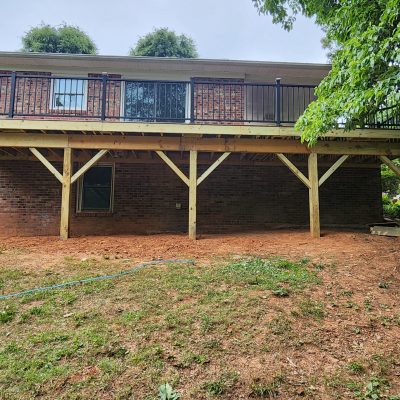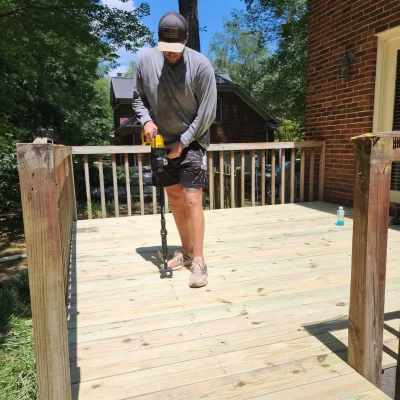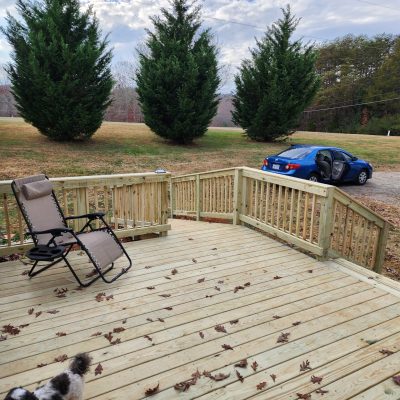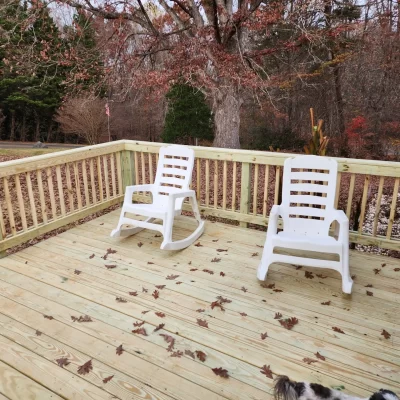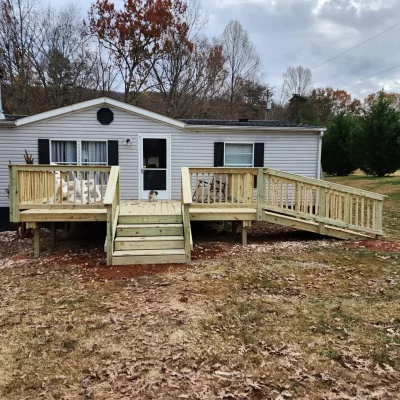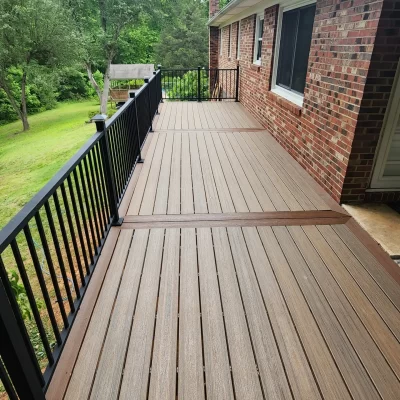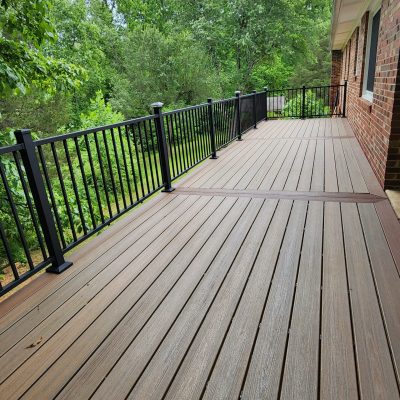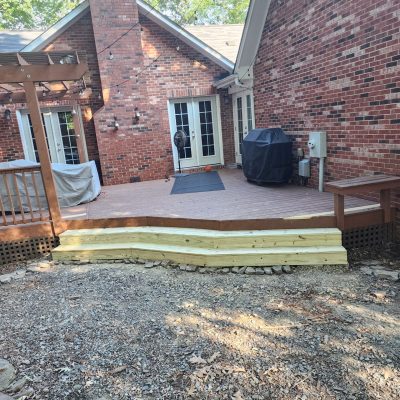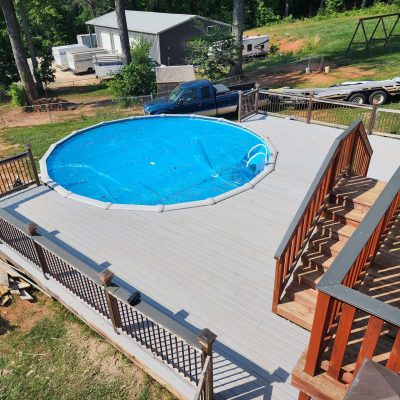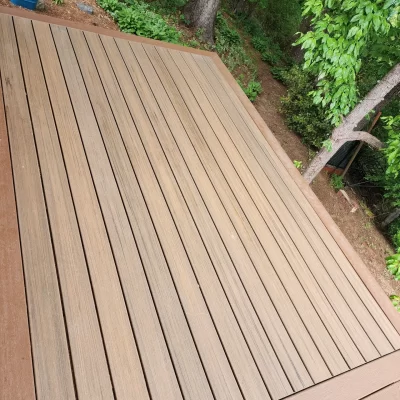Building Memories, One Deck at a Time: Explore RCR Deck Solutions
At Race City Renovations, we’re passionate about creating outdoor spaces that enhance your lifestyle and elevate your home. Our team of skilled craftsmen and designers are dedicated to bringing your vision to life with creativity, quality, and attention to detail.
What We Offer
Custom Design & Construction
- Collaborate with our design team to create a custom deck that suits your style and meets your needs.
- Our experienced craftsmen will then bring your design to life with precision and care, using the finest materials and construction techniques.
Repair & Restoration
- If your existing deck is in need of repair or restoration, we can help. From minor repairs to complete overhauls, we’ll restore your deck to its former glory.
Personalized Features & Additions
- Make your deck uniquely yours with personalized features and additions such as built-in seating, pergolas, and lighting.
- Our team will work with you to incorporate these elements seamlessly into your design.
Maintenance Services
- Keep your deck looking its best with our maintenance services. From cleaning and sealing to refinishing, we’ll help protect your investment and prolong its lifespan.
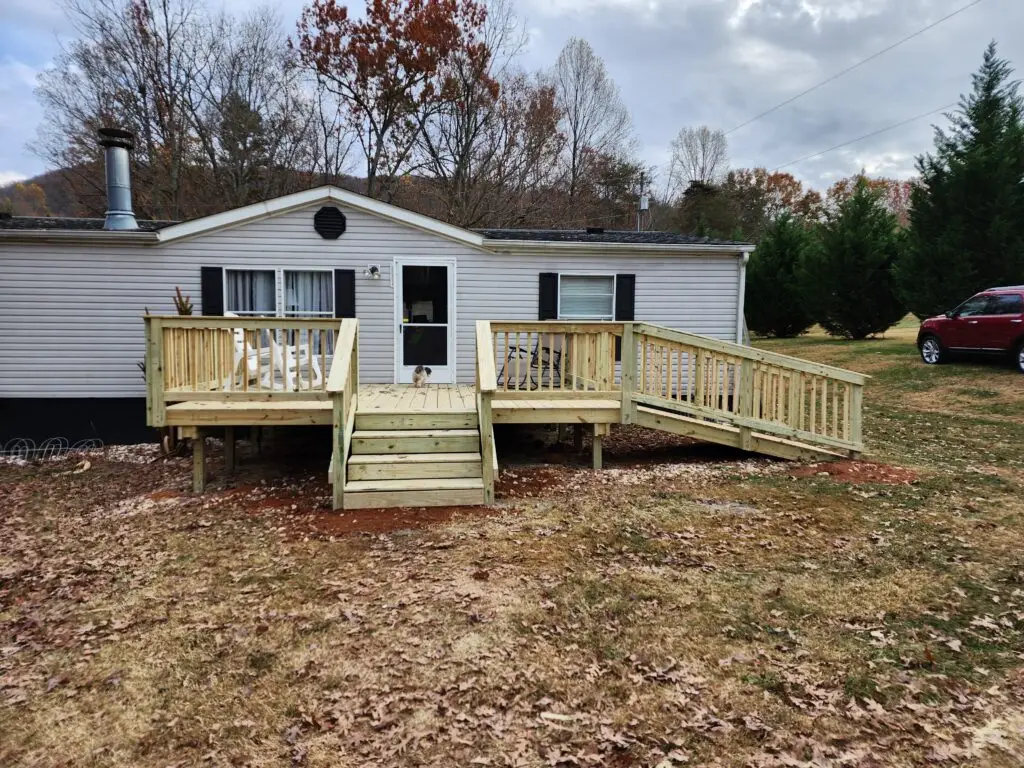
10'x16' Free Standing Porch
Starting at $5,500
All Pressure Treated, 10’x16′ Free Standing Deck, Perfect for a Modular Home or Camper. Includes Concrete Footers, 2’x8′ Beams, 2’x8′ Joists, 5/4 Deck Boards, Wooden Rails, 4′ Wide Steps, Built on Site, and Guaranteed to Pass North Carolina Inspection.
Composite Decking vs. Treated Deck Boards: Making the Right Choice
When it comes to selecting materials for your new deck, the decision between composite decking and treated deckboards is an important one. Each option offers its own set of advantages and considerations, and understanding the differences can help you make an informed choice that suits your needs and preferences.
Composite Decking
Pros:
- Durability: Composite decking is highly resistant to rot, mold, mildew, and insect damage, making it a durable option that requires minimal maintenance.
- Longevity: With proper care, composite decking can last significantly longer than traditional wood deckboards, often boasting warranties of 25 years or more.
- Aesthetics: Available in a wide range of colors, textures, and finishes, composite decking offers versatility and customization options to suit any design aesthetic.
- Sustainability: Many composite decking brands use recycled materials in their production, making them an eco-friendly choice for environmentally conscious homeowners.
- Low Maintenance: Unlike wood deckboards, composite decking does not require staining, sealing, or painting, saving time and money on upkeep.
Cons:
- Initial Cost: Composite decking typically has a higher upfront cost compared to treated wood deckboards, although the long-term savings in maintenance expenses may offset this initial investment.
- Heat Retention: Some composite decking materials may retain heat in direct sunlight, making them uncomfortable to walk on with bare feet during hot weather.
- Limited Repair Options: While composite decking is durable, it can be more challenging to repair if damage occurs, often requiring replacement of affected boards rather than simple repairs.
Treated Deck boards:
Pros:
- Affordability: Treated wood deck boards are generally more budget-friendly than composite decking, making them an attractive option for cost-conscious homeowners.
- Natural Aesthetics: Wood deck boards offer a classic, natural look that complements a variety of architectural styles and outdoor settings.
- Ease of Installation: Treated wood deck boards are easy to cut, shape, and install, making them a popular choice for DIY enthusiasts and professional contractors alike.
- Repairability: In the event of damage or wear, treated wood deck boards can be easily repaired or replaced, often with minimal effort and expense.
Cons:
- Maintenance Requirements: Treated wood deck boards require regular maintenance, including staining, sealing, and occasional repairs to prevent rot, decay, and insect infestation.
- Limited Lifespan: Despite maintenance efforts, treated wood deck boards are prone to rot, decay, and warping over time, resulting in a shorter lifespan compared to composite decking.
- Environmental Impact: The production of treated wood deck boards may involve the use of chemical treatments that can have environmental implications, although eco-friendly options are available.
